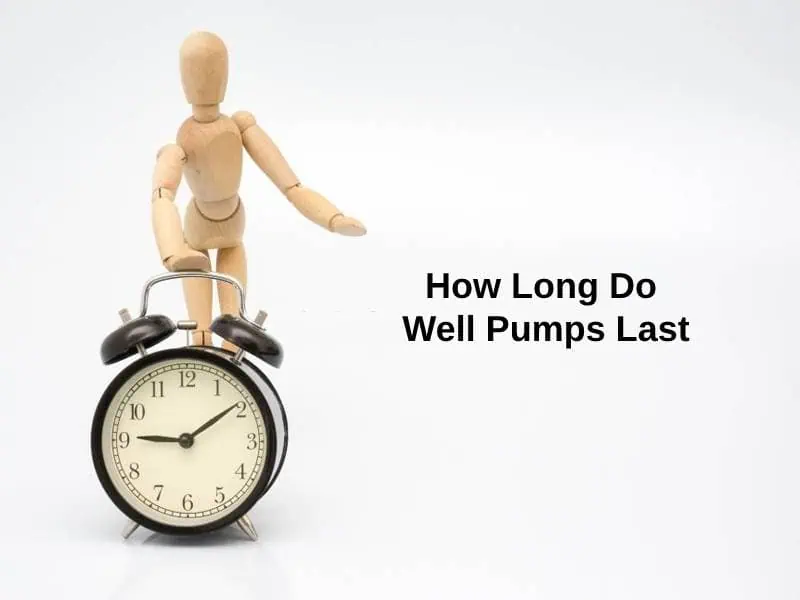Exact Answer: 10 to 15 years
Well pumps are commonly used machines to bring water to homes for domestic or industrial purposes. This well pump extracts water from water wells located beneath the land surface and transports it to the required places. Well pumps are one of the most used methods of getting water supply and it makes the water table one of the most depleted natural resources.
In many areas around the globe, the water table is only a few feet below the ground surface. In such conditions, digging a hole and using these Well pumps is the best way to get the water to the surface. A well-installed well pump can last for many years, although not infinitely.

How Long Do Well Pumps Last?
| Type of Well Pump | Expected Life |
| Submersible well pumps | 15 to 20 years |
| Jet well pumps | 8 to 10 years |
| Centrifugal well pumps | 12 to 17 years |
There are three major types of well pumps available in the market for fulfilling the needs of the people. These are the submersible well pump, the jet well pump, and the centrifugal well pump. Each of the machines differs in its mechanism but converges in their result of drawing water from the water table.
Submersible water pumps are the most prominent pumps used to draw water from the water table. They are installed in residential places or places with limited demand and pull out the water only when it is switched on. The submersible water pumps have the longest life expectancy of about 15 to 20 years and are the most durable ones.
Jet water pumps can be found in two types, shallow and deep in the market. As their name would represent, the shallow pump pumps water from within 25 ft while the deep pump pumps water from about 100 ft deep. These pumps have the potential to last for 8 to 10 years.
Centrifugal well pumps are another type of well pump. It involves just a pipe that goes not more than 25 ft below the earth’s surface to draw water. The centrifugal well pump has a projected life of about 12 to 17 years.
Why Do Well Pumps Last So Long?
There can be a multitude of reasons behind the long life expectancy of the well pumps. Daily usage hours, motor quality, water sediment, and the quality of installation of the motors are a list of the most important factors in this regard. Apart from these, there are a variety of other minor reasons which jointly affect the life expectancy of the well pump.
Daily usage hours of the motor is the most direct and major determinant of the life of well pumps. Pumps that are used for only a few hours tend to last much longer than pumps that are under heavy or continuous use. Pumps that are used frequently wear out at a faster rate leading to a short life.
The quality of the pump put into use also has a direct bearing on the life of the well pump. If the pump has more horsepower, it will be considered of greater quality and will have a resultant long life. A larger pump that has more horsepower than a smaller one will have a long life than the smaller one.
In addition to that, the sediment condition of the area of installation also has a say in its life expectancy. If the sediment concentration is high, it will probably lead to a decrease in the life of the pump. This is because sediment negativity impacts the working of the pump.
Conclusion
Well pumps are of three major types. The submersible well pump has a projected life of 15 to 20 years. The jet well pump has an estimated lifespan of about 8 to 10 years while the centrifugal well pump has an estimated life of 12 to 17 years.
Well pump is influenced by a number of factors that have a say in its life. The major factors in this regard are the daily usage hours of the pump, quality, and horsepower of pump and water sediment, besides the quality of installation. These factors may positively or negatively impact its life.